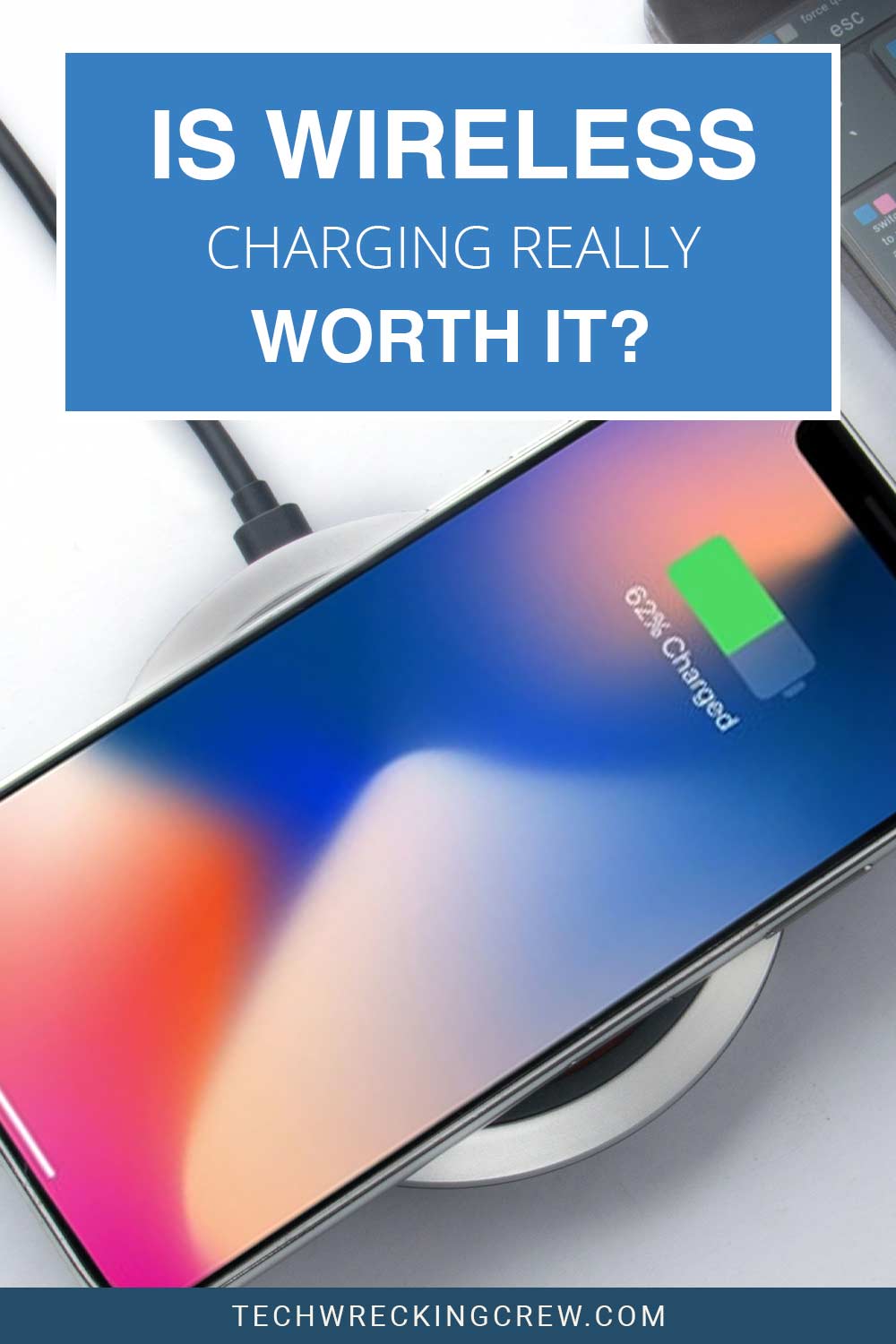A particular convenience comes with being wireless; for one, not having a bunch of cords that get tangled and tripped on is very pleasant.
In addition, for some iPhones, charges will take, on average, around two to three hours to charge, while androids have been clocked in at around sixty minutes or less.
For now, survey results show that wireless chargers are slower and less effective than the wired plug-in connection chargers already being produced. This is why the question is being asked, is it worth it, and the answer is yes.
The convenience of this product can be utilized in places like work, at the coffee shop, or the library without needing to fumble around with clunky wires.
Is it Better to Wireless Charge or Plug-In?
There are different opinions on this topic; for instance, one must consider the quality of the charge and the time it takes to complete the charge. In this case, the wired chargers are still the better product with which the wireless technology will hopefully catch up.
Let’s think about it in another way. Wireless chargers have a rather convenient usage ability, As simple as setting your computing device on the wireless pad itself.
From there, a cell phone user will be able to charge and go quickly, making this way of charging ideal for those who are always on the move.
How Much Slower is Wireless Charging?
There is a rather distinct time difference in how long it takes for a cell phone to complete a full charge between a wired and wireless charger.
On average, through a compilation of various studies, a wireless charger to one hundred percent (if possible) would take nearly two or three times as long as a quality wired charger.
In a pair of studies, an android phone at zero took three hours to charge on the wireless pad compared to just over an hour and a half for the wired fast-charging cable.
Similar results were when testing an iPhone, which took four and a half hours on the wireless pad, while the cable took two and half hours to complete the charge.
Will your Phone Battery die faster with Wireless Charging?
Consider how efficiency affects the battery life of either android devices or iPhones.
The wireless charging technology, as of now, can only charge cell phones with a maximum of sixty percent in most cases, which is down from a wired charger minimum score of sixty-five percent.
To think about it more straightforwardly, if your phone typically holds a charge that goes for fourteen hours, expect that to last closer to eleven to twelve hours.
This, of course, is because the technology is relatively new, and with most tech, as we advance, so do the gadget’s abilities and quality. So will your Phone Battery die faster with Wireless Charging?
What is the Fastest Wireless Charging?
The fastest technology on the market is called “Qi-charging,” like the Chinese word.
The most rapidly charging wireless charger on the market could be the Samsung 15W Fast Charge Wireless Charging Stand which has a 25W USB-C’ Super-Fast Charger’ allowing the product to give an even faster recharge.
Provided below is a list of additional fast-charging products that could contend for being the fastest on the market:
- Samsung 15W Fast Wireless Charger – Supports all devices with Qi certification.
- Nanami Qi-certified wireless charger – Has a safe charging protection mode
- One plus 50W wireless charger – Can provide a full charge in forty-eight minutes
Why do People Prefer Wireless Charging?
For one, it is not because of the efficiency that the classic plug port chargers provide; no, the reason for the preference is the convenience and the ease of using a wireless charger.
One such design allows users to set their phone atop a pedestal inside a wooden bowl and charge it while depositing things like keys and a wallet into the bowl for safe keeping.
There are a variety of creative and fun designs that tech companies have come up with; the preference is for design and style. These wireless chargers allow customers to select a unit that works for them.
Final Thoughts on Is Wireless Charging really worth it
Few pieces of technology are more advanced than the Qi chargers; they could use Tesla-like charge connectivity to recharge our ultimate tool, the smartphone.
They may still have some bugs and flaws, low efficiency, and charges that do not last, but as technology advances, so will the capabilities of these wireless chargers. Are they worth the price?
Yes, especially if you have a taste for fashion and design, these custom units can be made to perform even the most menial of tasks. Think of things such as holding keys, providing a reading light and the time, or possibly playing the radio.

